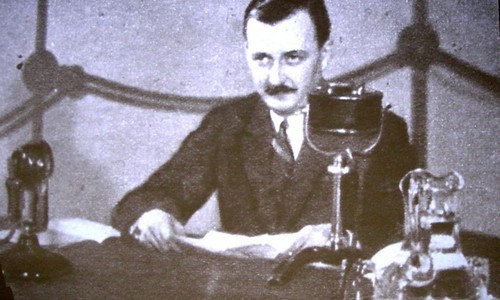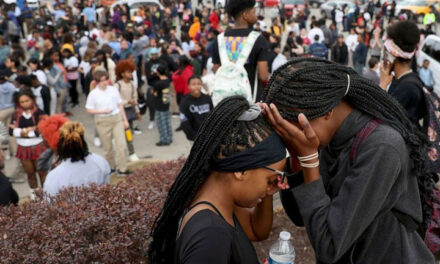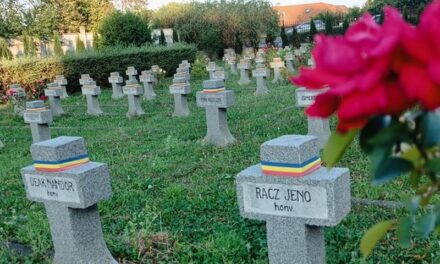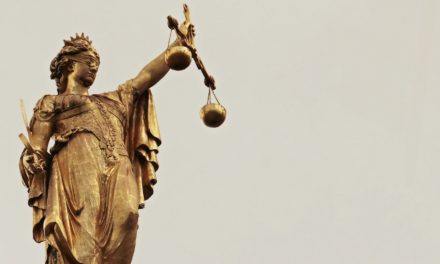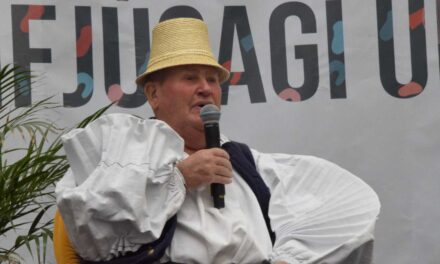János Esterházy was remembered along the Ipoly.
The Esterházy commemorative year, which was announced by the National János Esterházy Memorial Committee on the 120th anniversary of the martyr politician's birth, is slowly coming to an end, and will conclude on March 9 within the framework of an expiatory mass in Alsóbodok and Nagycétény, where a memorial site will also be erected in honor of the Christian politician. In the spirit of this, the afternoon of the second Sunday of February was spent in almost early spring sunshine, when a memorial plaque was unveiled in honor of the servant of God, János Esterházy, in Kóvár and Szécsénykovácsi on the Ipoly River.
In Kóvár, in the local church garden, in almost the same place from which the former politician spoke to his followers in 1935, Pál Csáky, former deputy prime minister of the MKP, member of parliament and member of the European Parliament, a native of Kóvár, shared his thoughts, the church garden in its entirety in front of a full crowd of interested local and neighborhood people, highlighting not only his political but also his Christian greatness as a human being. In his speech, he recalled, among other things: "I confess many times, I feel a bit guilty that we are once again talking about Esterházy in connection with the reconstruction of Hungarians after the First World War and their trials after the Second World War. I feel that this situation is somewhat unbalanced, because - thank God - a serious Hungarian team of well-educated and decent people decided after the Trianon peace decree to stay here, in their homeland, and start to eliminate the consequences of the historical shock. Contribute to the political, economic and community reorganization of Hungarians in the highlands, even in the new, difficult circumstances.
And the post-World War II anti-German and anti-Hungarian frenzy unfortunately has more victims than just Esterházy. So I consider it fair to remember all of them in at least one paragraph, they deserve it.
Therefore, if we are aware of the above connection and discuss János Esterházy in the light of this, the process will take on more correct and balanced contours. All the more so because his contemporaries legitimized him by electing him the outstanding leader of their national community.
And Fate also joined them by pointing out five times to Esterházy, presenting him with a serious decision, and I feel that Esterházy did not find it easy even once.
The first such challenge, to which he said yes, was the awareness of community involvement. He was born a count, he could have said - as, unfortunately, several of his contemporaries also said: leave me alone, why should I take all the problems and troubles of this community of nearly one million on my shoulders. I live my own life and I don't care about the rest. He didn't do that, he put his whole life at the service of the community. And he did it with honesty and conviction.
Fate tempted him a second time in 1938, after the feedback. As the elected representative of the Kassa electoral district, he was also invited to the Hungarian parliament as a co-opted representative. However, he refused this: he accepted the more difficult fate of being a Hungarian minority in Tiso's Slovakia.
And of course the temptations came there: in the increasingly fascism country, he reached a limit where he had to give clear answers to the inevitable questions. One in Europe that was completely brown, one in Slovakia that outshone even the Berlin role model even then.
The Slovak anti-Jewish laws were a degree harsher even than the laws of the Third Reich (just as the anti-Hungarian and anti-German executive laws of the Slovak parliament after 1945 were also a degree more drastic than the infamous Beneš decrees, to which they were bound): the political-spiritual smallness sat torah here too.
In addition, the Slovak fascist state was able to pay the Third Reich 500 Reichsmarks for each Jew taken to a concentration camp - as a kind of service fee - to make sure that no unfortunates who were taken from there would return. In English: it will be possible to arize its assets, thus the future of the new Slovak ruling class will be financially founded.
It is in this context that Esterházy's vote against the Jewish Code on May 15, 1942 must be seen and examined, and his related statements that he made publicly must also be taken into account, the essence of which is that although he was able to accept to a certain degree the social status of the Jews relegating them to the background, when the goal is openly material and physical destruction, he can no longer support it for reasons of conscience. And to this must be added the reaction of the Slovak and German press of the time, which clearly and very harshly attacked him for this.
And the fourth ordeal came: at the beginning of 1945, he found himself in a situation that is very rare, and which truly testifies to the fact that no dictatorship can tolerate the stand of a decent person.
He was chased by the Gestapo, chased by the Arrow Guards - and finally captured by Slovak nationalists and handed over to the competing Soviet dictatorship. And he could no longer break free from the Slovak nationalist - Czechoslovak communist - Soviet communist network.
More precisely: there was also another temptation, the possibility that he would leave the country in 1945 or later and save at least his bare life. And he didn't do that either, because he knew that all his thoughts and actions had a symbolic meaning: he was a man of principles, and in camps, uranium mines and prisons he purified himself even more in spirit. Consciously accepting his fate there, he tried to keep the spirit even in the other prisoners.
There are not many examples in history of a grateful posterity erecting dozens of memorials and statues to a man who is still officially a war criminal.
The number of these memorial sites now exceeds forty in the Highlands. Those who feel that such a principled and moral attitude is not only justifiable, but simply unavoidable: the existence of a minority, its spiritual strength, and its attachment to the past and future are based on this. From the point of view of Hungarians in the highlands, there is no need for his rehabilitation, because the community has never rejected him, he has always felt it as its own.
His rehabilitation on the part of the Slovak state would be necessary - but after he was sentenced on the basis of the same sections of the Penal Code as Jozef Tiso, the self-proclaimed democratic Slovak politics is afraid of it like the devil is of holy water. We had one more debt in relation to Esterházy: we had to make sure that his ashes were at least symbolically returned to his homeland. There are traces of him in the cemetery in Motol, but he is not a victim of communism, but of Slovak nationalism. And let the trail remain in Mírov as well. That's right too. But his symbolic urn - according to his last will - returned to his homeland. So, let's visit Alsóbodok as many times as possible, and bow our heads to his memory and decency," concluded Csáky.
Afterwards, Béla Hrubík, the initiator of the plaque and a member of the Esterházy Memorial Committee, unveiled the plaque, which clearly proclaims the politician's human creed: "Let's love each other like good brothers!" , and which was consecrated and blessed by Vicar József Parak, in the presence of local parish priest Márk Hutár. In addition to the local government, civil and political organizations, the Csemadok Nagykürtösi Regional Election and the EJ Memorial Committee also placed the commemorative wreaths. The elevated mood was closed by the tunes of our national prayer, the National Anthem, and then the organizers moved to the other place of commemoration, Szécsénykovács.
The small settlement along the Ipoly is the ancient nest of the Krúdyaks. This is where the Krúdy great-grandparents sleep their eternal sleep in the local cemetery, and Sindbád once sailed from this village to become one of the greats of world literature. The local church, which was sorely lacking during the village's nearly 1,000-year history, was built and consecrated at the beginning of the 2000s, and to which Pál Csáky contributed financially as a former deputy prime minister. The memorial plaque of János Esterházy was placed on the wall of this church, announcing his Christian affiliation and the locals' respect for his work.
József Flip, the local mayor, highlighted in his greeting that the opinion of the little people was always important to Esterházy, and he visited almost every settlement in the Highlands to talk to the people, learn about their problems and their lives. This is very much missing from public life and national politics today, and occasions like today are becoming rarer and rarer.
Pál Csáky thanked him for the invitation and the opportunity, and in his speech, continuing the Kovár line of thought, emphasized that Esterházy did not want to conform to any oppressive regime.
That is why he was persecuted by the communists after the war, but also why he was wanted by the Nazi Gestapo during the war years. He professed that "our sign is the cross and not the swastika," and he kept this creed until the end of his life.
The commemorative plaque placed next to the entrance of the church, whose bronze plaque was made by the Hungarian sculptor Oláh Szilveszter, was consecrated and blessed by the episcopal vicar József Parák. In the presence of a large audience, in addition to the local government, the Csemadok, the EJ Memorial Committee, the president of the district platform of the MKP, and the Order of Knights of the Carpathian Basin also placed the flowers of commemoration. After singing the Speech and the National Anthem, we discussed the chances of this year's local government elections and the situation of our community, which faces many challenges.
The Ipoly marched with dignity, with its head held high, honorably remembering its former politician, bowing to his humane and Christian behavior. Events like this contribute greatly to the fact that we don't forget those great people who dedicated their lives and destiny to community service, promoting the preservation of the homeland, the mother tongue, and Christianity, because this is the only way we can remain Hungarian in the place where fate has placed us. , and where we have our mission and work. Esterházy is a good example of this sense of mission, from which we must draw strength for our everyday lives and our struggles... God grant that it may be so!

